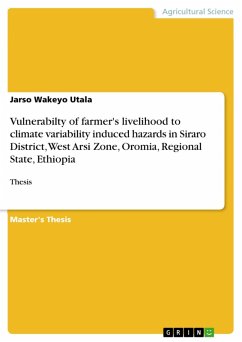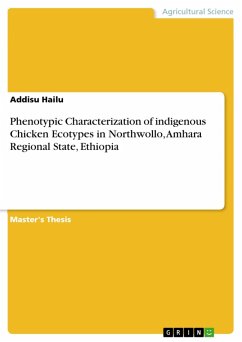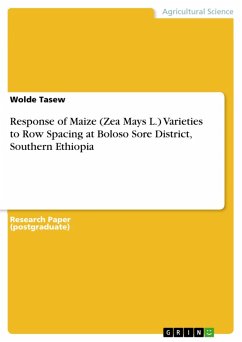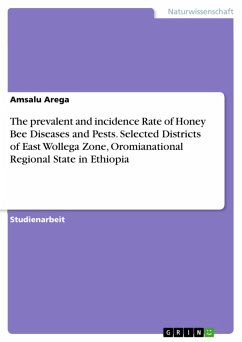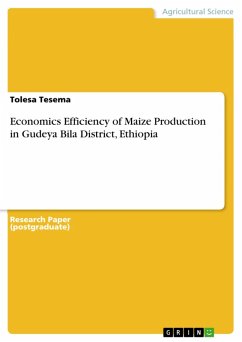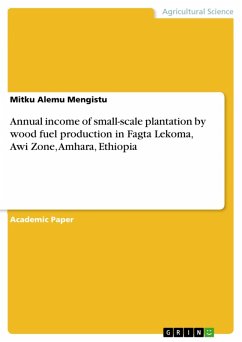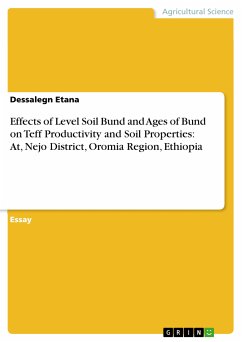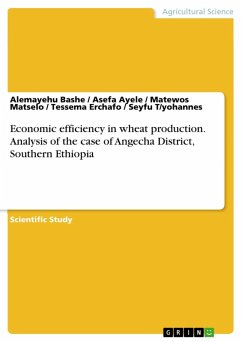Master's Thesis from the year 2016 in the subject Agrarian Studies, grade: Very Good, , course: Population and Socioeconomic Development Planning, language: English, abstract: Most previous studies on vulnerability of smallholder farmer's livelihood to climatic hazards had focused on large scale, global, regional or national levels. In addition, they gave more focuses to assessment of impacts of climatic hazards to farmers than assessment of farmer's vulnerability to climatic hazards. Thus, this study was designed to bridge this gap by assessing vulnerability of farmer's livelihood at household level measured as perceived sensitivity and lack of adaptive capacity to climatic hazards and by exploring sets of socioeconomic indicators that significantly determine vulnerability of farmers' livelihoods. Cross-sectional data was collected through household survey from 379 randomly selected respondents which were also complemented with qualitative assessments. Principal component analysis was used to identify major socioeconomic indicators that contribute to vulnerability of farmer's livelihood using orthogonal axis rotation in SPSS version 20. Binary logit model was used to identify principal socioeconomic indicators that significantly influence sensitivity and adaptive capacity of livelihoods of sampled farmers. The findings revealed that households that are heterogeneous in location of residence, sources of income, ownership to animals have significant influence on perceived sensitivity of farmers to climatic hazards. However, socioeconomic indicators such as age, gender, family size, have insignificant influence on sensitivity of farmer's livelihood to climatic hazards. Gender, marital status, educational status of household head, coping mechanisms like grain & cash saving, NRM practices has significant influence on perceived adaptive capacity of farmers. Yet, access to social interconnectedness such as idir or iqub, family relatives, and cost of drinking water has insignificant influence on perceived adaptive capacity of farmers. Currently, 59%, 38% and 3% of sampled farmers have overall vulnerability status of low, moderate and high respectively. The overall conclusion is that differences in status of vulnerability of their livelihoods are attributed to differences in their present socioeconomic attributes. Community should strengthen existing hazard coping mechanisms whilst GOs and NGOs should support farmers in diversification of income sources and restocking of animals. Active community engagement in planning and execution of disaster risk reduction strategies and practices is also indispensable.
Dieser Download kann aus rechtlichen Gründen nur mit Rechnungsadresse in A, B, BG, CY, CZ, D, DK, EW, E, FIN, F, GR, HR, H, IRL, I, LT, L, LR, M, NL, PL, P, R, S, SLO, SK ausgeliefert werden.

